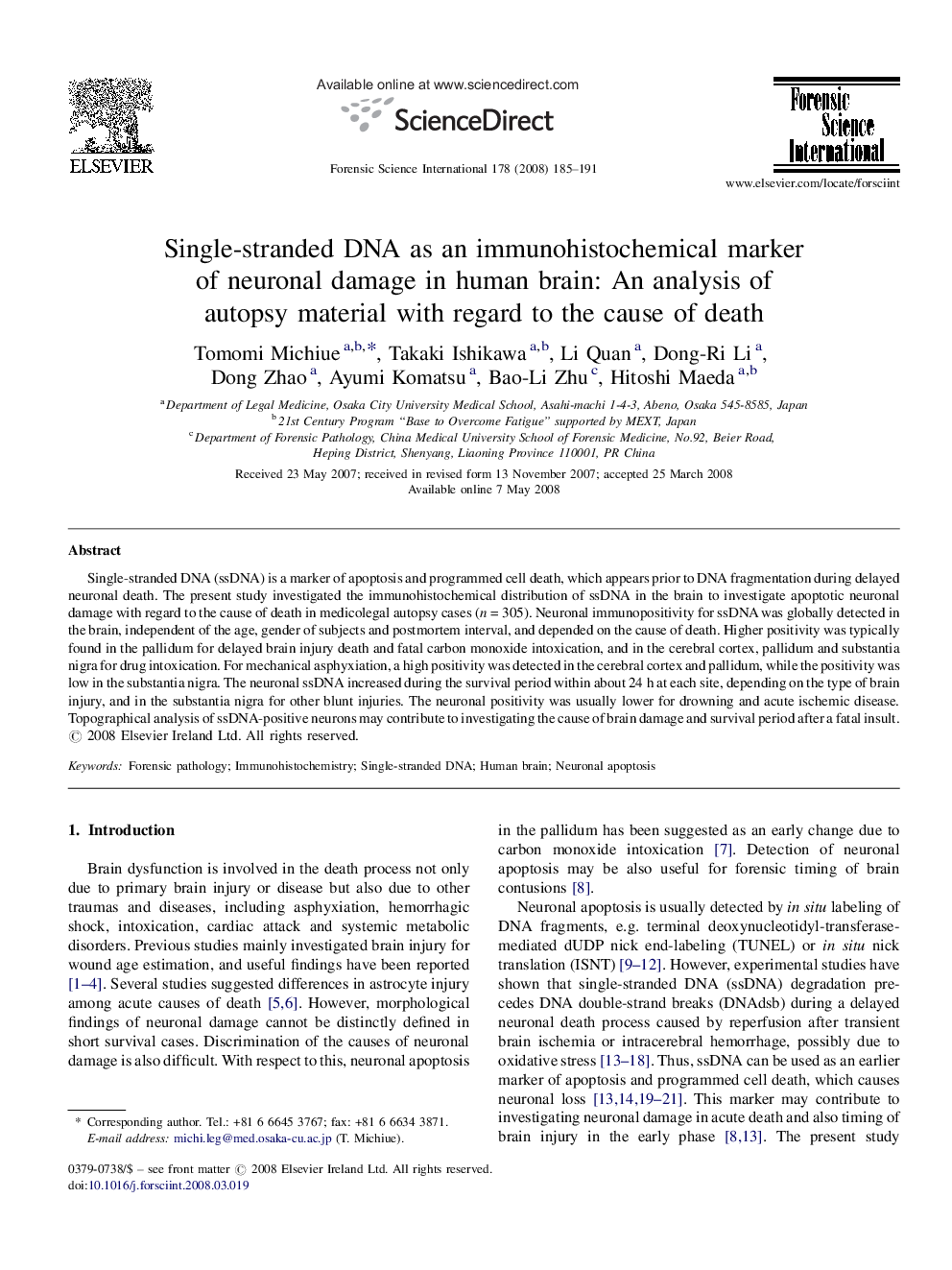| کد مقاله | کد نشریه | سال انتشار | مقاله انگلیسی | نسخه تمام متن |
|---|---|---|---|---|
| 97728 | 160506 | 2008 | 7 صفحه PDF | دانلود رایگان |

Single-stranded DNA (ssDNA) is a marker of apoptosis and programmed cell death, which appears prior to DNA fragmentation during delayed neuronal death. The present study investigated the immunohistochemical distribution of ssDNA in the brain to investigate apoptotic neuronal damage with regard to the cause of death in medicolegal autopsy cases (n = 305). Neuronal immunopositivity for ssDNA was globally detected in the brain, independent of the age, gender of subjects and postmortem interval, and depended on the cause of death. Higher positivity was typically found in the pallidum for delayed brain injury death and fatal carbon monoxide intoxication, and in the cerebral cortex, pallidum and substantia nigra for drug intoxication. For mechanical asphyxiation, a high positivity was detected in the cerebral cortex and pallidum, while the positivity was low in the substantia nigra. The neuronal ssDNA increased during the survival period within about 24 h at each site, depending on the type of brain injury, and in the substantia nigra for other blunt injuries. The neuronal positivity was usually lower for drowning and acute ischemic disease. Topographical analysis of ssDNA-positive neurons may contribute to investigating the cause of brain damage and survival period after a fatal insult.
Journal: Forensic Science International - Volume 178, Issues 2–3, 4 July 2008, Pages 185–191